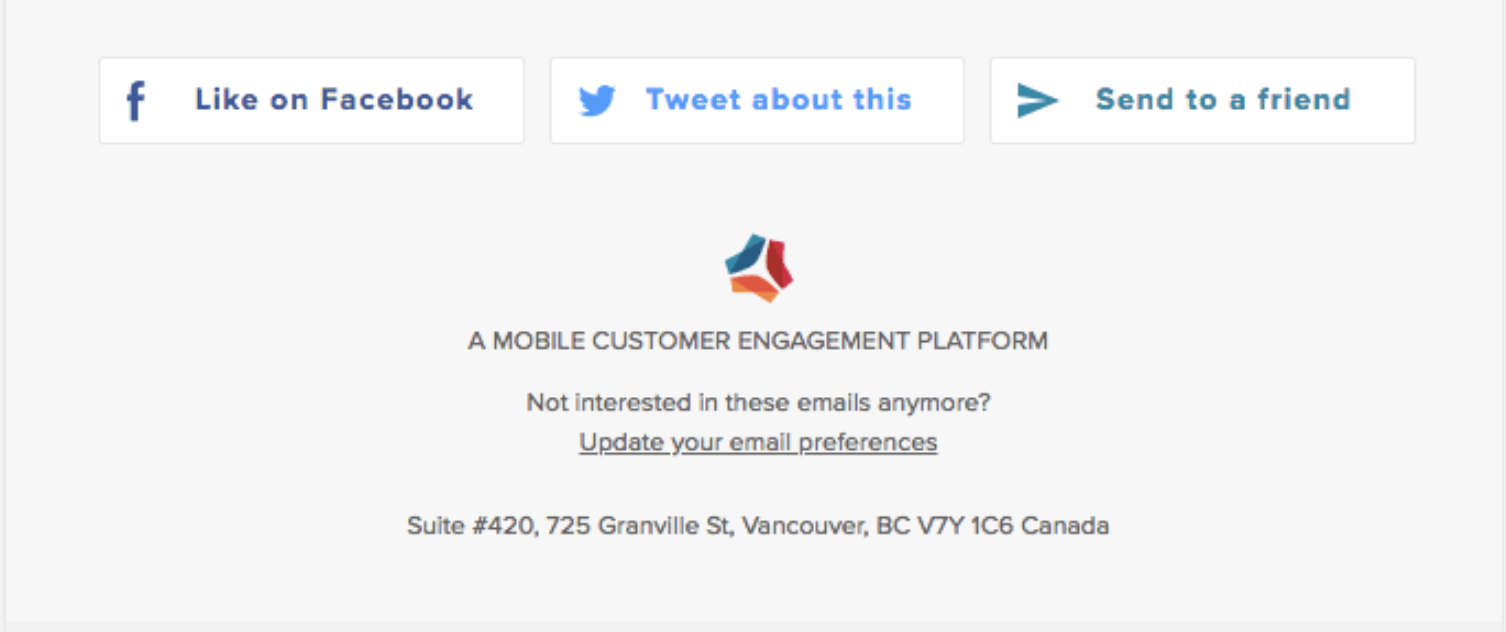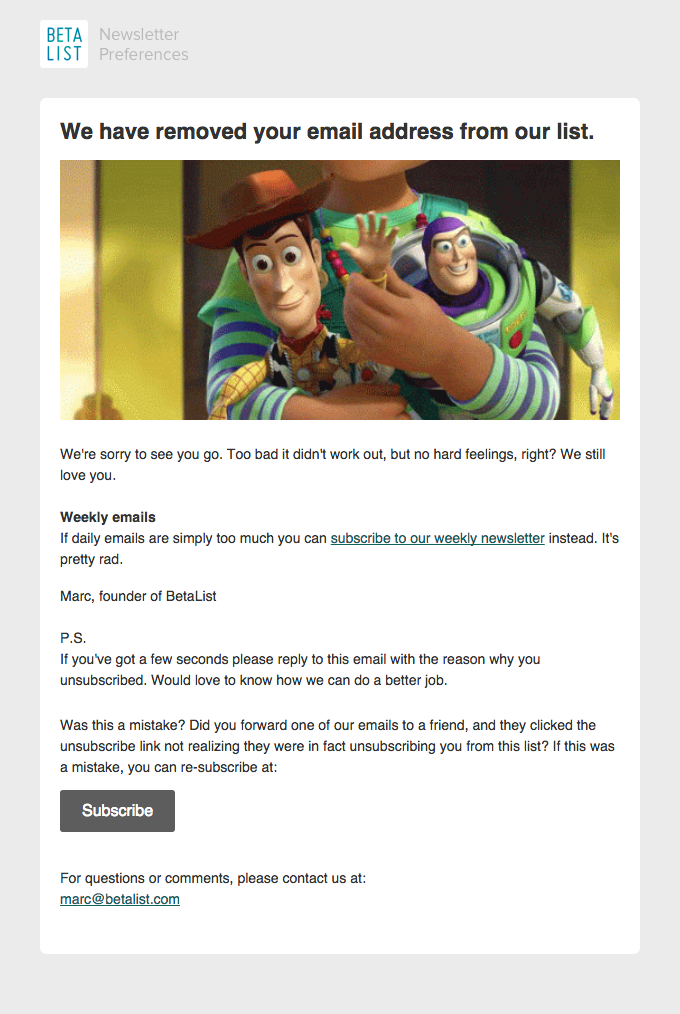Email marketing is the single most effective digital marketing strategy, delivering as much as a $44 for every $1 spent. With these high success rates, it’s tempting for marketers to go to any lengths to reach inboxes.
However, the only way to truly foster customer loyalty, promote relationships, and nurture the lifetime value of a customer is to acquire email addresses honestly, deliver content subscribers actually want, and develop an overall winning email marketing strategy.
It’s easy to get wrapped up in getting results from email and forget about the subscribers receiving your messages. When you reflect on your email tactics, are you sure you’re not spamming those on your lists?
This post will present an overview of the top three ways you might be spamming your email list, either without even knowing it or without understanding how it will negatively impact your ROI. Ultimately, spamming your list will waste your time and budget in the long run.
Let’s dive right in to some of the top spamming no-no’s.
1. Engaging fake sign ups
There are a few ways fake subscribers may end up on your list. One of the more common ways is if your brand purchased email addresses to add to your list.
While it may be shocking that marketers would engage in this practice, it’s more common than you’d think. Sometimes, it’s not the marketers who buy the lists, but founders, business operations, and other professionals who aren’t educated about the negative effects of doing so.
There are several problems that come from purchasing lists full of subscribers. They are as follows:
- There is no guarantee the subscribers you purchase are real.
- If the email addresses are real, there is no guarantee the people are interested in your brand or messages.
- It’s possible the email addresses could have been obtained illegally, which could result in a $16,000 fine for each email you send. Yikes.
- The moment you send out a message to a purchased list, you’ll look like a spammer and subscribers may even mark your email address as spam.
- Your response rates will plummet.
- You’ll get in trouble with your email service provider, who could boot you off the platform.
- Your reputation as a top brand and industry influence will be shattered.
Buying an email list will boost the amount of subscribers you have. However, advertising to people who either aren’t real or don’t want to hear from you will do nothing for promoting customer loyalty or increasing ROI.
When it comes to buying fake subscribers, just don’t do it.
Unfortunately, there are other innocent ways you may end up with fake email addresses. If you fall victim to a prankster or a spambot, you can unintentionally acquire fake subscribers.
The best way to protect yourself from pranksters and spambots is to use a trusted email service provider that protects you and your reputation. A great email provider will offer double opt-in features, spam prevention systems, and detection of fake accounts with honeypot fields and throttling methods. With these services in place, you decrease the chances significantly of obtaining fake email addresses.
Remember, it’s not quantity that counts when it comes to winning over subscribers. It’s quality. Do everything in your power to keep your lists clean and accurate.
2. Making it difficult for subscribers to opt out
You may think making it easy for people to unsubscribe would encourage them to leave your list as soon as possible. However, the exact opposite is true. Giving subscribers a way out, if they want it, builds trust with your valuable customers.
To avoid looking like a spammer, make sure to include a highly visible unsubscribe link. This link can appear at the top of your email, the bottom of your email, or in the text of your email. You’ll also want to include a page that confirms to your audience the unsubscription was successful.
If you are worried people may unsubscribe to your list accidentally, you can either require an extra click to validate the unsubscription or you can ask the subscriber to enter their email address before clicking “unsubscribe.” Both of these methods still make it easy for people to unsubscribe, but ensure only people who don’t want to hear from you unsubscribe, instead of interested customers with a clumsy finger.
Another great option to avoid looking like a spammer and to fine-tune your lists is to offer for subscribers to update their preferences. For example, if you are a large brand, you probably have one or more email lists and customers may have accidentally subscribed to all lists instead of just one.
Furthermore, you may send emails at different frequencies. It may be the case that a subscriber simply wants to hear different messages from you or less often from you. When a subscriber clicks “unsubscribe” or “update your preferences” present them with the option to opt out of specific lists or hear from you less often.
Remember, the goal of email marketing is to engage people who want to hear from you, not trap readers into receiving messages from you. If you make it easy to unsubscribe and/or update preferences, you are just taking extra measures to make sure your list is polished.
Finally, when you make it difficult or impossible to opt out of messages, you run the risk of subscribers marking you as spam. The more emails that people mark as spam, the higher your chances are of getting in trouble with your email provider.
3. Using words that trigger spam filters
Did you know if certain words pop up in a subject line, most email services will automatically send your email to the spam folder?
You may have the best intentions as a marketer, but if your email subject line and/or copy are spammy, there is little to no chance of your email ever even seeing your subscribers’ inboxes.
The 455 spam words to avoid are compiled into a handy list for your viewing pleasure here, but here are some of the top words, phrases, and symbols you want to avoid:
- 100%
- $$$
- Amazing
- Be amazed
- Can’t live without
- Call now
- Claims to be legal
- Click
- Deal
- Double your
- Free
- Extra income
- For only
- Free preview
- Great
- Hello
- Limited time
- Make $
- No cost
- Now
- Once in a lifetime
- And many more!
Also avoid writing in all caps, attaching any files to your email, and including too much copy in your emails.
A better option for email copy is to use creative and engaging copy, A/B test your subject lines, include personalization (e.g. including a first name in the subject line and copy), keeping the message short, and using a reliable email service provider.
Wrap up
Email marketing truly is one of the best ways to reach customers and experience a high ROI. However, this is only true if you follow email marketing best practices and avoid engaging in tactics that make you look like a spammer—even if it’s on accident.

